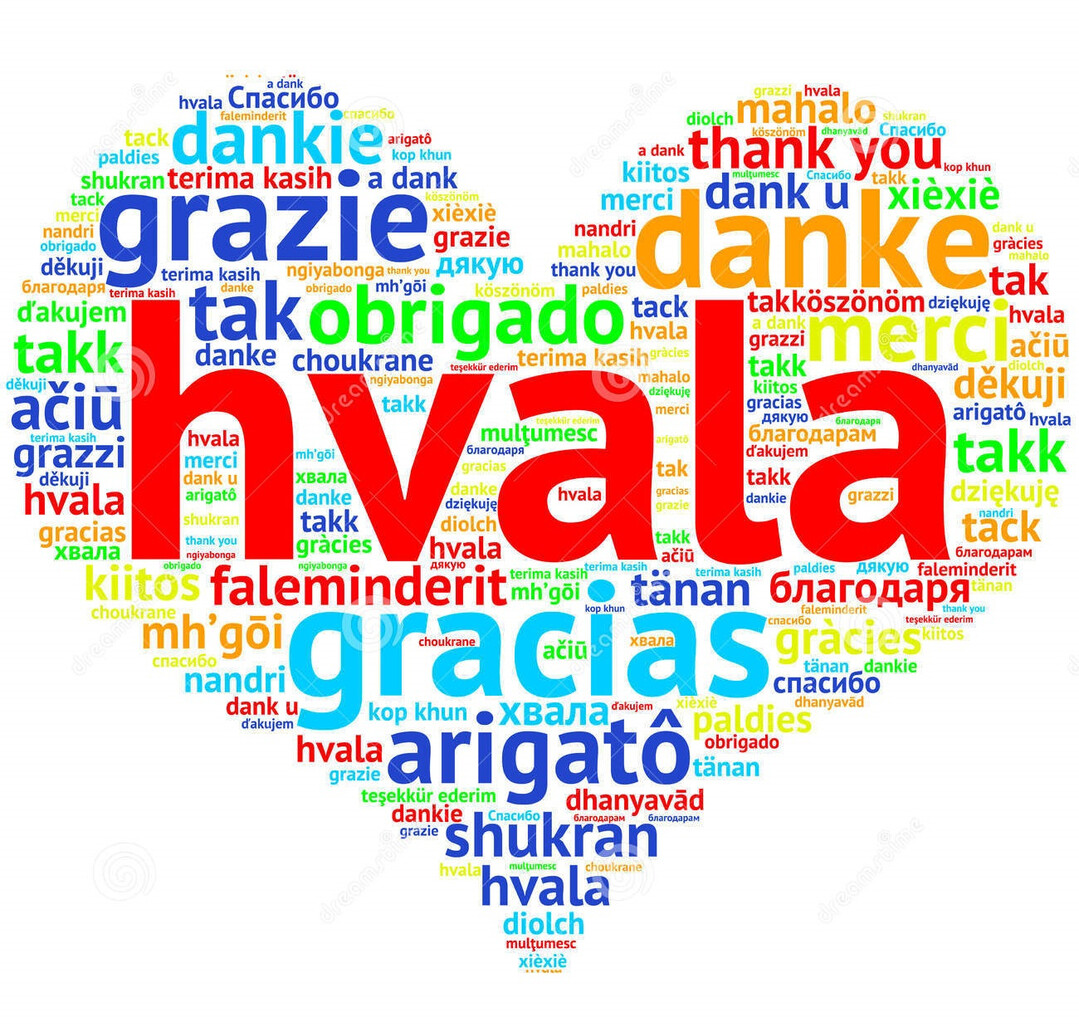
Zagreb, Croatia – As Croatia celebrates the Month of the Croatian Language, spanning from February 21st (International Mother Language Day) to March 17th (the anniversary of the Declaration on the Name and Status of the Croatian Literary Language), a spotlight shines on the fundamental word of gratitude: "Hvala."
"Hvala" (thank you) stands as the cornerstone of polite Croatian communication, joining "molim" (please), "izvoli" (here you are), and "oprosti" (sorry) as essential phrases taught to children from a young age. These words embody the proverb "Lijepa riječ sva vrata otvara" (A nice word opens all the doors), emphasizing the power of courteous language.
The word "hvala" is universally used across Croatia, with regional variations like "fala" prevalent in coastal regions, offering an easier pronunciation for non-native speakers. While "hvala" remains the standard, younger generations often incorporate English terms like "thanks" and "thank you," sometimes rendered as "tenks" or "tenkju," or abbreviated in text. Other foreign expressions of gratitude, such as "merci" (French), "Danke" (German), "grazie" (Italian), and "gracias" (Spanish), are used sparingly.
However, the question arises: how often do we truly mean "thank you"? A study published in the Royal Society Open Science journal revealed that while people generally comply with requests, expressions of gratitude are given only about one in seven times.
Even when gratitude is expressed, a distinction exists between a routine "hvala" and more heartfelt expressions. Croatians use phrases like "hvala od srca" (thank you from the bottom of the heart), "puno hvala" (thanks a lot), "najljepša hvala" (most thankful), "hvala ti kao bratu" (thanks as a brother), and "hvala ti do neba" (thank you to the moon and back) to convey deeper appreciation.
"Hvala lijepa" (also "hvala lipa" in Dalmatia and "fala lepa" in Zagorje) is a common extended form of "thank you." A frequent error among even native speakers is the incorrect use of "hvala lijepo." The correct form is "hvala lijepa" because "hvala" is a feminine noun.
Context is crucial when using "hvala," as it can indicate both acceptance and refusal. For instance, when offered a treat, "hvala" or "hvala lijepa" accompanied by a nod or hand gesture can politely decline the offer.
This month, as Croatia celebrates its linguistic heritage, "hvala" serves as a reminder of the power of gratitude and the nuances of the Croatian language.
[Copyright (c) Global Economic Times. All Rights Reserved.]




























